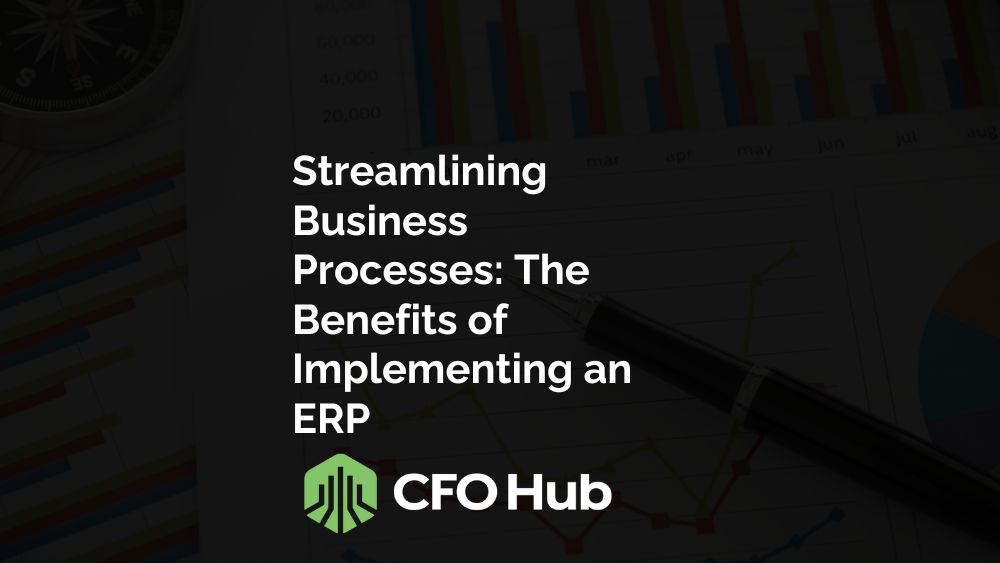What Happens When Your Business Doesn’t Have a System
Running a business without a unified system is like trying to navigate a maze while blindfolded. You rely on scattered spreadsheets, disconnected software, and processes that don’t communicate. The result? Missed opportunities, wasted hours, and unnecessary costs. Sound familiar? ERP systems fill this gap. An ERP system integrates all core operations under one platform, from finance to supply chain management. Instead of juggling tools that don’t align, businesses get a streamlined approach that reduces inefficiencies. Working with ERP business consultants, however, may be a game-changer because putting an ERP system into place might seem overwhelming. These professionals evaluate your existing processes, spot any bottlenecks, and suggest an ERP system that meets your requirements. They make sure the process runs as smoothly as possible and are more than simply advisers. Speaking with experts before taking this step might differentiate between a smooth and frustrating outcome.
Key Benefits of Implementing an ERP System
Why are ERP systems gaining traction across industries? Because they deliver tangible results. Here is a detailed analysis of the benefits small companies can expect:
- Increased Efficiency: ERP systems allow your team to focus on strategic objectives by streamlining repetitive tasks like inventory management and data input. Imagine reducing errors and processing orders faster with ease.
- Improved Decision Making: Having immediate access to real-time data helps you make more educated judgments quickly. Instead of reviewing old data, you will have a live dashboard that shows sales trends, cash flow, and inventory levels.
- Cost Savings: Unifying operations reduces redundancy and unnecessary expenses. For instance, an ERP system can prevent overstocking by synchronizing inventory with demand forecasts.
- Scalability: An ERP system grows with you whether you add a new product line or expand to new markets. It’s a solution designed to handle complexity without creating chaos.
Let’s consider a small retail business. Pre-ERP, tracking stock across multiple locations was a nightmare, resulting in lost sales due to out-of-stock items. Post-ERP implementation? Inventory levels are updated in real time, and no sales opportunities are missed. This is transformative.
The ROI of Streamlined Processes
Purchasing an ERP system may be a significant financial commitment, particularly for small enterprises. But the return on investment frequently outweighs the initial expenses:
- Enhanced Productivity: If processes are streamlined, your staff can spend more time fostering growth and less time troubleshooting. Payroll automation, for example, will reduce the time spent on human computations.
- Lower errors: Human errors through data entry or financial reporting are costly. An ERP system avoids these risks since it is mechanized and uniform data entry and reporting between the departments.
- Increased customer satisfaction: Improved response times, accurate order delivery, and clear communication make customers who come back happy.
Consider a scenario: A wholesale distributor experiencing delayed shipments invests in an ERP system. Order processing time drops by 30% within months, and customer complaints decrease significantly. The upfront cost of the software becomes negligible compared to the long-term gains.
What does an M&A advisor do?
An M&A advisor guides businesses through mergers and acquisitions by providing financial analysis, valuation, and strategic advice. They help identify potential buyers or sellers, negotiate deals, and structure transactions to maximize value. Their expertise ensures due diligence is thorough, uncovering risks and opportunities before closing a deal. M&A advisors also assist with financing options and regulatory compliance to facilitate a smooth transaction. Ultimately, they help companies achieve growth, exit strategies, or market expansion through well-executed mergers and acquisitions.
Finding the Right Fit for Your Business
Not all ERP systems are the same. Choosing the right one for your business will depend on uniquely understanding your business needs. Do you want to improve supply chain management or focus on financial reporting? This is another area where ERP business consultants prove to be very valuable. They will help assess your goals, evaluate vendors, and ensure the system aligns with your processes. A poorly chosen ERP can create more problems than it solves, so having expert guidance is crucial. When evaluating choices, look for adaptability, growth potential, and user-friendliness. Small retail shops will likely find inventory management key, while the growing consultancy could focus on reporting financials. Remember that the appropriate ERP system addresses current challenges and equips you for future expansion.
Conclusion
Small businesses have enough to grapple with, and inefficiency shouldn’t be on the list. ERP systems present a way out. They can replace chaos with clarity and wasted effort with streamlined workflows. ERP systems enable companies to operate more efficiently than with more significant effort by integrating operations and delivering practical insights. With the help of experienced ERP business consultants, you can implement a solution tailored to your needs, ensuring long-term success. For businesses ready to streamline their processes, the path forward is clear. Leap, and you’ll wonder how you managed without it.
Mark is an accounting and finance professional with over a decade of experience in public accounting and consulting. As both an accountant and entrepreneur, he is passionate about helping clients strategically organize and grow their businesses to reach their goals.
Visit Mark's Expert Hub to learn more about his experience and read more of his editorial content

